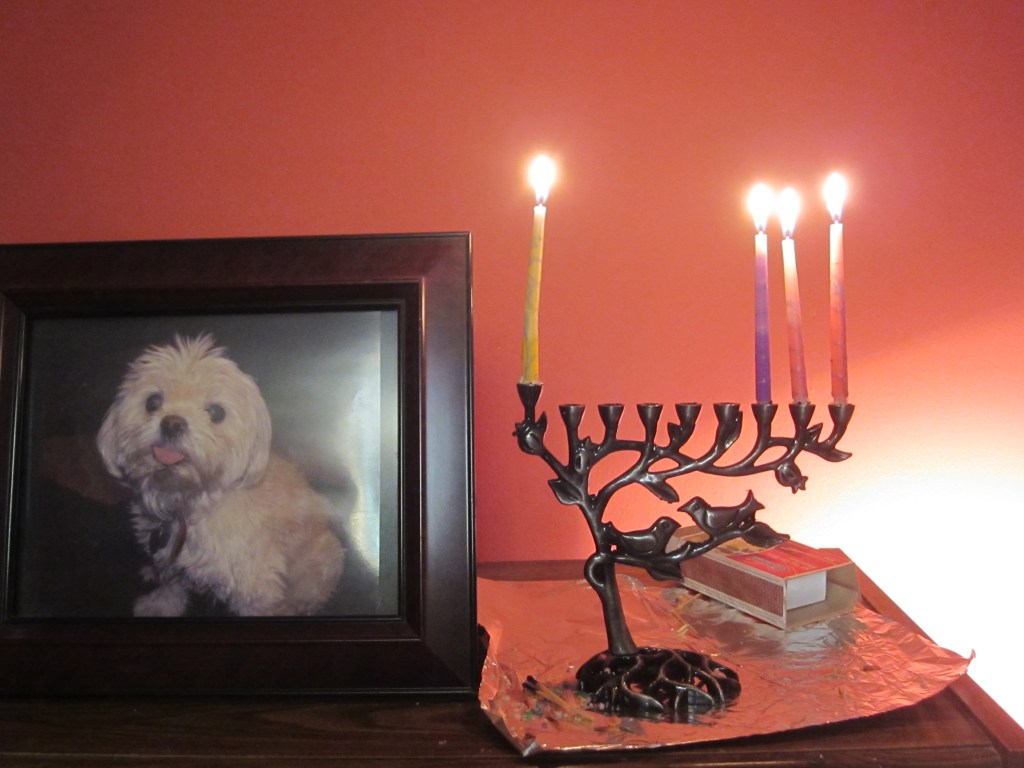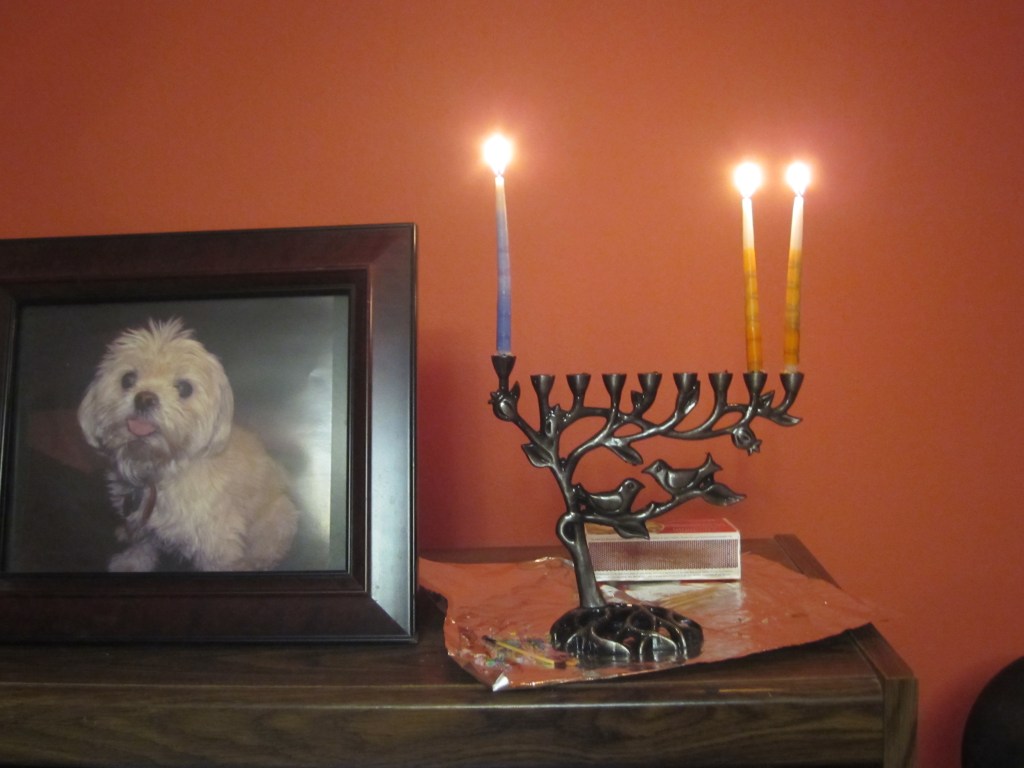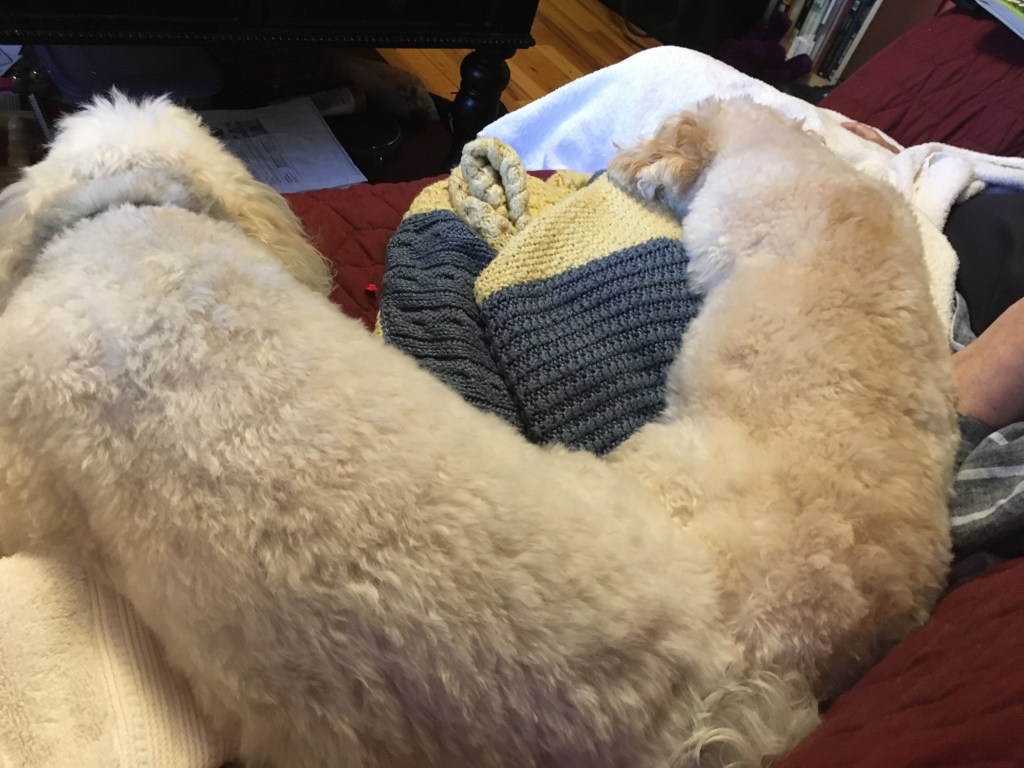When the official Jewish Bible was closed, the rabbis still had questions they wanted to answer, so they started writing the Talmud (The Mishnah and then the Gemara), a compendium of (endless) arguments, commentaries, word play, stories and Gematria (a method for finding deeper meaning in the text, using the number values of the letters). And then, after the Talmud was considered closed, the next generation of Rabbis still had more questions, and answers, about what God really meant in the Bible, so they kept writing and collected the work in new books of Midrashim (a Midrash is a general term for the way the rabbis interpreted and elaborated on the biblical text, and Midrashim is the plural of Midrash).
Midrashim exist in many different forms: stories, homilies, parables, and legal exegesis. In a way, Midrash is the earliest form of fan fiction, where we take existing characters and situations from popular TV shows or books and imagine new scenarios for them. Just like we want to enter the world of Harry Potter, or J.R.R. Tolkien, or Little Women, our ancestors wanted to enter the world of the Bible and imagine themselves in the role of Abraham or Sarah or Miriam or Moses. They liked to think about how they would have behaved in front of the Burning Bush, or facing the Sea of Reeds with the Egyptian soldiers coming up behind them. And they wanted to imagine what it would be like to face God, and speak to God, and criticize God directly the way the characters in the Bible were able to do.
The best known Midrash may be the legend of Abraham as a young child smashing his father’s idols. He tells his father that the idols destroyed each other, and his father didn’t buy it, because idols aren’t living beings. To which little Abraham says, exactly. According to MyJewishLearning.com, this Midrash, collected in Genesis Rabbah, was created to explain why God would choose Abraham in particular to be the father of the Jewish people, because he was willing to challenge the conventional wisdom of his time.
Midrash fascinates me because it allows us to reinterpret the Bible through our own eyes. It’s about more than just figuring out what the original writers meant, it’s about finding something in the story that rings true for us in particular. A Midrash doesn’t have to be factual in order to express a deeper truth from the Bible, and therefore, possibly, meaningful to the reader as well.
Unfortunately, since we have such a long tradition of rabbis (aka men) telling us what to think, many people still feel too intimidated to read the Bible through their own eyes. They imagine that the rabbis, who were often already a thousand or two thousand years distant from the source material themselves, must have heard the voice of God. But just because they had the confidence to believe they knew what was right, doesn’t mean they were right. Or that their answers are right for us.

Midrash writing wasn’t just popular in the distant past, modern writers have taken it on as well. Consider Anita Diamant’s book The Red Tent, a reimagining of the story of Dinah in the Bible. Judith Plaskow is another modern feminist Midrash writer, who embarked on Midrash writing as a way to include the female voice in the story of the Jews, while still respecting the Bible itself and the traditions of Judaism. She wrote an essay called “The Coming of Lilith,” re-imagining Lilith as a woman who was wrongly punished for wanting to be considered equal to Adam. The original Lilith Midrash was written by men, as an attempt to make sense of the two different versions of the Adam and Eve creation myth in Genesis. In the first version, both Adam and his wife are created from the earth, and in the second version Eve is created from Adam’s rib (or his side), and the rabbis decided that these were two separate creation stories. In the first, the wife God created for Adam, Lilith, was too uppity and thought that she was equal to Adam, so, of course, she turned out to be a demon who defied God and threatened to eat children (no, really). When God created a second wife for Adam, Eve, God decided that she needed to know her place, so she was created out of Adam himself, as a subsidiary to him. Of course she still went and ate that apple, so, women, feh. It’s all their fault.

Judith Plaskow’s version of Lilith isn’t a demon at all, she’s a woman who refuses to be submissive to her husband and leaves him. Eve, the second wife, is told that Lilith is a demon who has to be kept out of the Garden of Eden because she’s a threat to children and women, etc, etc. But Eve gradually recognizes that Lilith is just a woman, like herself, and someone she could be friends with.
Both Midrashim represent the mindset, and the time period, of the writers themselves, and both give us new ways to read the original stories in the Bible and try to understand the inconsistencies and mysteries therein. Can I believe that there are women whose power to seduce or manipulate men can seem demonic? Yes. Are there women who are called demons who are really just people being held back from living their own lives? Yes. Are either of those readings what God, or the authors of the Bible, meant us to learn from the original stories in the Bible? We can’t know. The truth of the stories, and the lessons of the stories, are up to us to decide. And we can each decide differently.

I want to help my students, children and adults, see that Judaism isn’t a religion of passive obedience, or at least that it doesn’t have to be. If you are willing to engage in the storytelling, and the story-hearing, and take ownership of your own beliefs and values, Judaism can be as dynamic and meaningful as you need it to be.
And yet, I keep struggling to write my own Midrashim, or to plan a way to teach people how to write Midrash. I’m intimidated by exactly those people who I want to thumb my nose at, and I think this happens in a lot of areas of my life. I know what I think, and what I believe, but I don’t feel like my beliefs matter, or have value, compared to the people who are RIGHT. The dichotomy between my confidence in my own opinions, on the one hand, and my belief that I have no right to that confidence on the other, is a constant.
The Bible is so tempting to work with, because it is notoriously tight-lipped when it comes to certain details. Don’t get me wrong, you will be bored to tears with lists of ancestors and sacrifices and tribes and kosher and unkosher animals, but the storytelling style is very lean and leaves a lot of room for the reader’s imagination. It’s instinctive to start asking questions like, what must have happened behind the scenes to make the characters act that way? What might they have been feeling or thinking that they didn’t say? And what else happened that the writers of the Bible decided to leave out, if we assume that these are true stories?
But I keep hearing the rabbis (ancient and current day) yelling at me that I don’t know what I’m talking about, and I keep hearing my imaginary students telling me that this work is too hard and not worth the effort, because we could just read the existing commentaries and Midrashim, or we could write new stories of our own instead of dragging meaning from such a stubborn book. And I can’t disagree. But I’m still compelled by the possibility that I could find a way to place myself in the world of my ancestors, and see more of what was there than I’ve been able to see so far.
I just don’t know where to start. Maybe with Lilith. Maybe, for me, Lilith isn’t a demon, or even a separate person from Eve. Maybe I can see both creation stories as part of the same story, with one woman seeing herself as equal to her husband, and subsidiary to him, at different times. Because, why wouldn’t the first woman be as conflicted over who she thinks she is, or who she thinks she should be, as I am?

If you haven’t had a chance yet, please check out my Young Adult novel, Yeshiva Girl, on Amazon. And if you feel called to write a review of the book, on Amazon, or anywhere else, I’d be honored.
Yeshiva Girl is about a Jewish teenager on Long Island, named Isabel, though her father calls her Jezebel. Her father has been accused of inappropriate sexual behavior with one of his students, which he denies, but Izzy implicitly believes it’s true. As a result of his problems, her father sends her to a co-ed Orthodox yeshiva for tenth grade, out of the blue, and Izzy and her mother can’t figure out how to prevent it. At Yeshiva, though, Izzy finds that religious people are much more complicated than she had expected. Some, like her father, may use religion as a place to hide, but others search for and find comfort, and community, and even enlightenment. The question is, what will Izzy find?

















